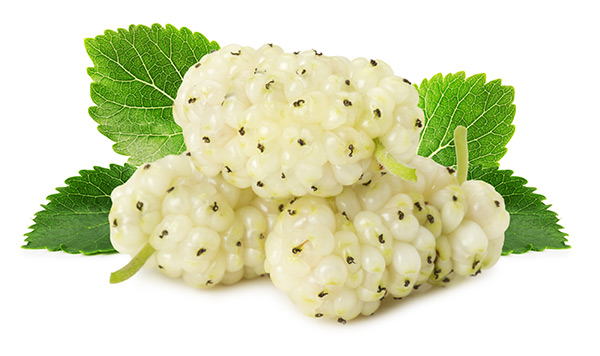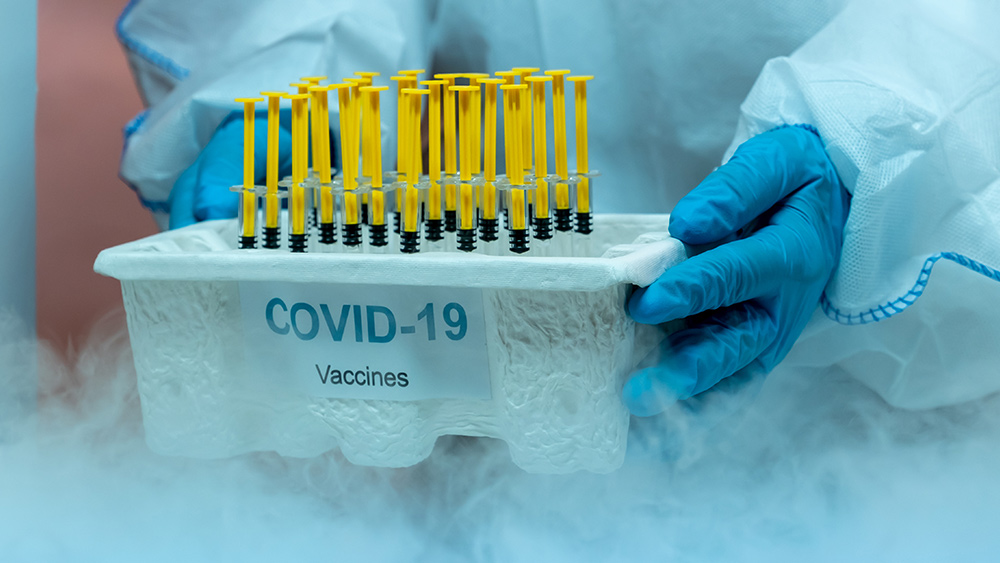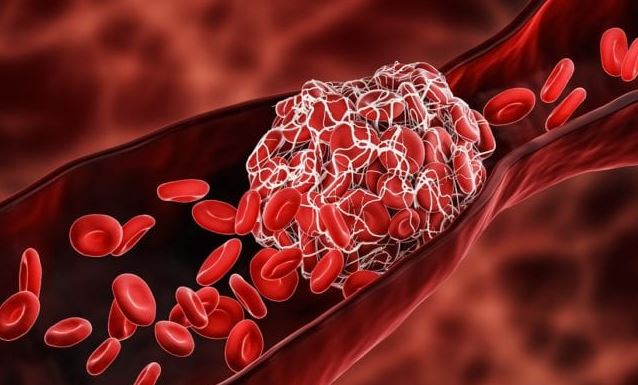Mulberry tree found to exhibit anti-inflammatory and promising anticancer properties
09/20/2024 / By Olivia Cook

For centuries, the mulberry tree (Morus spp.) has been a staple in traditional herbal medicine.
While many are familiar with the health benefits and therapeutic potential of its fruits and leaves, the bark of the mulberry tree, particularly its tree root bark, holds a wealth of untapped potential. Traditionally used to soothe inflammation, protect the liver and kidneys and relieve pain, this humble bark is gaining attention for something more remarkable – its potential in fighting cancer.
Recent studies have begun to explore how extracts from mulberry tree root bark reduce inflammation and may also have promising anticancer properties. (Related: The next big health marvel: Mulberry tames cancer, inflammation Alzheimer’s and more.)
Anti-inflammatory power of the mulberry tree
Mulberry trees have long been celebrated for their medicinal properties and one of their standout benefits is their anti-inflammatory effects. In recent studies, extracts from various parts of the mulberry tree, including its bark and fruit, have shown remarkable potential in reducing inflammation.
A recent key study published in the journal Molecules revealed that the ethanol extract from white mulberry fruits contains high levels of flavonoid and phenolic compounds. These natural phytochemicals are crucial because they help combat oxidative stress – one of the leading causes of inflammation. Oxidative stress is caused by an overproduction of reactive oxygen species (ROS), and the mulberry extract has been found to neutralize these harmful molecules – reducing inflammation at its root.
In addition to neutralizing ROS, mulberry extract has been shown to inhibit the MAPK pathway – a series of signals within cells that contribute to inflammation. By blocking certain enzymes (such as p38 and JNK) that are active in this pathway, the extract helps to stop inflammation from escalating. One specific compound found in mulberry – rutin – also plays a role by targeting the same pathway but focusing on inhibiting p38.
Another benefit of mulberry extracts is their ability to boost the body’s natural antioxidants, such as superoxide dismutase and glutathione. These antioxidants are essential for protecting cells from damage, further reducing inflammation. Additionally, the extract helps to regulate nitric oxide (NO) levels in the body. NO is a molecule that, when overproduced due to infections or injuries, can contribute to inflammation. Mulberry bark extract helps to lower NO levels by controlling the enzymes responsible for its production, particularly in inflammatory conditions.
Further research highlights the active compound oxyresveratrol found in mulberry trees. This compound has been shown to inhibit leukocyte (white blood cell) migration – a key part of the inflammatory process. Oxyresveratrol does this by blocking a specific pathway, the MEK/ERK signaling pathway, which plays a crucial role in inflammatory responses.
In both laboratory and animal studies, mulberry extracts have consistently shown their potential as natural immune modulators, activating the immune system to fight inflammatory diseases. Mulberry’s alkaloids, such as 1-deoxynojirimycin (DNJ), have also been found to stimulate macrophages – a type of immune cell that plays a key role in inflammation control.
Research also indicates that mulberry leaf extracts, when treated with high pressure, can suppress the production of inflammatory molecules like cytokines and nitric oxide. This effect further underscores mulberry’s potential in reducing inflammation and related diseases.
Mulberry tree bark and its role in fighting various cancers
Mulberry tree bark, specifically from Morus alba (known as white mulberry and silkworm mulberry), is emerging as a powerful ally in the fight against cancer. At the heart of this discovery is morusin – a natural compound found in the bark that belongs to the flavonoid family. Flavonoids are known for their wide range of health benefits and morusin is no exception.
Recent research, highlighted in a 2023 review published in the journal Frontiers in Molecular Biosciences, has shed light on morusin’s impressive anticancer properties. This compound has demonstrated effectiveness against a variety of cancers, including those affecting the brain, breast, colon, liver, ovaries, pancreas and stomach.
One of the most intriguing aspects of morusin is its ability to induce apoptosis or programmed cell death in cancer cell lines. This means morusin can potentially help eliminate cancer cell lines by triggering their self-destruction. While the precise mechanisms behind morusin’s anticancer effects are still under investigation, it is believed that it interferes with crucial signaling pathways that tumors rely on for growth and survival.
Breast cancer
Research on breast cancer cell lines showed that morusin can induce apoptosis in these cells. It works by influencing proteins that regulate cell death, such as increasing the levels of Bax, which promotes apoptosis and reduces the levels of survivin, which helps cancer cells evade death.
In simple terms, Bax is like a switch that helps decide when a cell should die. It promotes cell death when something is wrong inside the cell, such as DNA damage or stress. In cancer, cells often avoid death, which helps them grow uncontrollably. Increasing Bax levels in cancer cells might help make those cells die – slowing down or stopping tumor growth.
Additionally, morusin appears to trigger other forms of cell death, such as autophagy and necrosis.
Colorectal cancer
Studies show that morusin can stop the growth of colorectal cancer cells and prevent the formation of cancerous cell clusters. It also targets key proteins involved in cancer stem cell growth – helping to limit the cancer’s ability to spread and persist. By affecting specific molecular pathways crucial for cancer development, morusin holds promise as a novel treatment option for colorectal cancer.
Gastric cancer
Studies on gastric cancer cell lines have demonstrated that morusin can inhibit cancer cell growth in a dose-dependent manner. It works by blocking the cell cycle, which prevents cancer cells from dividing and growing. Morusin also reduces the expression of proteins linked to cancer progression, such as c-Myc, and has been shown to decrease tumor size in animal models. These results indicate that morusin could also be a useful component or treatment strategy for gastric cancer – potentially enhancing therapies or providing an alternative option for patients.
Glioblastoma multiforme
Morusin has shown potential in targeting resistant glioblastoma multiforme (GBM) cancer stem cells (CSCs)– one of the most aggressive and deadly brain tumors because it contains CSCs, which resist chemotherapy and radiation. These stem cells help tumors grow back even after treatment.
In studies, morusin was found to inhibit the growth of GBM cells and reduce the formation of CSC clusters. Morusin also triggers the death of cancer cells by affecting important proteins that control the cell cycle and apoptosis, such as increasing Bax and caspase-3, which promote cell death and decrease Bcl-2, which helps cancer cells survive. Furthermore, morusin reduces the expression of stem cell markers – leading to the CSCs becoming more specialized, which weakens their ability to cause tumor growth.
Kidney cancer (renal cell carcinoma)
Research indicates that morusin can stop the growth and spread of renal cell carcinoma (RCC) cells. This type of cancer often starts in the kidney’s outer layer and can also affect the kidney’s collecting ducts.
Morusin causes cancer cells to self-destruct by stopping them from dividing and moving. The bioactive compound affects signaling pathways that are important for cancer cell growth and survival. In studies with mice, morusin was also found to slow down the growth of RCC tumors.
Liver cancer (hepatocellular carcinoma)
Studies have found that morusin can kill liver cancer cells, particularly hepatocellular carcinoma, and reduce their growth.
Morusin blocks certain pathways that cancer cells use to grow and spread. This natural compound also prevents new red blood vessels from forming, which tumors need to grow – making morusin a promising candidate for helping treat liver cancer.
Nasopharyngeal carcinoma
Morusin has shown potential in treating nasopharyngeal carcinoma (a type of cancer that affects the nasopharynx, an area behind the nose and above the throat) by inhibiting the movement and invasion of cancer cells. Research indicates that morusin can block the expression of MMP-2 – a protein linked to cancer spread and poor outcomes in nasopharyngeal cancer (NPC). By preventing the activity of this protein, morusin might help reduce the risk of NPC metastasis.
Prostate cancer
In experiments on prostate cancer cell lines, morusin was found to reduce survival of cancer cells while sparing healthy prostate cells. The compound blocks a key signaling pathway (SRC/JAK2/STAT3), which is important for cancer cell survival. By suppressing this pathway, morusin triggers death of cancer cells by reducing proteins that help them avoid apoptosis.
Read more about natural cancer fighters like mulberry at PlantMedicine.news.
The American mulberry (aka the red mulberry) is amazing. Watch this video.
This video is from the Daily Videos channel on Brighteon.com.
More related stories:
Extract from roots of Morus alba (white mulberry) can treat metabolic syndrome.
Mulberry compound found to fight obesity, high cholesterol, high blood sugar and even cancer.
Sources include:
Submit a correction >>
Tagged Under:
alternative medicine, anti-inflammatory, anticancer, Bible herbs, cancer tumors, health science, herbal medicine, Herbs, morusin, mulberry tree, natural cures, natural health, natural medicine, Naturopathy, Oncology, phytonutrients, plant medicine, remedies, research
This article may contain statements that reflect the opinion of the author



















